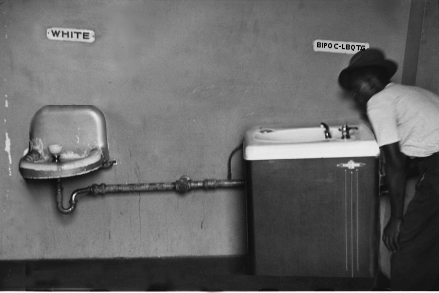Pushback: Blacklisted small businessman sues Biden administration for its racist contracting policies

Democrats: dedicated to the new segregation!
“Segregation today, segregation tomorrow, segregation forever!” Christian Bruckner, a Romanian immigrant who runs a small business that competes for government contracts, is suing the Biden administration for its race and gender quotas outlined in the $1.2 trillion federal infrastructure law passed late last year by Congress.
The Infrastructure Investment and Jobs Act, signed into law in November 2021, appropriated $1.2 trillion for new infrastructure projects. As part of this law, Congress authorized $370 billion in spending for roads, bridges, and other transportation projects. But the law contains a quota, requiring that at least 10% of all funding ($37 billion) go to small businesses owned by “socially and economically disadvantaged individuals.”
Federal regulations define “socially disadvantaged” as the following racial or ethnic groups: Black Americans, Hispanic Americans, Native Americans, Asian Pacific Americans, or Subcontinent Asian Americans. And women are deemed “socially and economically disadvantaged.” Small businesses owned by males who are not in these preferred racial groups cannot compete for this money. This would include not only businesses owned by white males, but also males whose ancestors are from many countries in Central and South America, North Africa, the Middle East, and North and West Asia.

Democrats: dedicated to the new segregation!
“Segregation today, segregation tomorrow, segregation forever!” Christian Bruckner, a Romanian immigrant who runs a small business that competes for government contracts, is suing the Biden administration for its race and gender quotas outlined in the $1.2 trillion federal infrastructure law passed late last year by Congress.
The Infrastructure Investment and Jobs Act, signed into law in November 2021, appropriated $1.2 trillion for new infrastructure projects. As part of this law, Congress authorized $370 billion in spending for roads, bridges, and other transportation projects. But the law contains a quota, requiring that at least 10% of all funding ($37 billion) go to small businesses owned by “socially and economically disadvantaged individuals.”
Federal regulations define “socially disadvantaged” as the following racial or ethnic groups: Black Americans, Hispanic Americans, Native Americans, Asian Pacific Americans, or Subcontinent Asian Americans. And women are deemed “socially and economically disadvantaged.” Small businesses owned by males who are not in these preferred racial groups cannot compete for this money. This would include not only businesses owned by white males, but also males whose ancestors are from many countries in Central and South America, North Africa, the Middle East, and North and West Asia.
